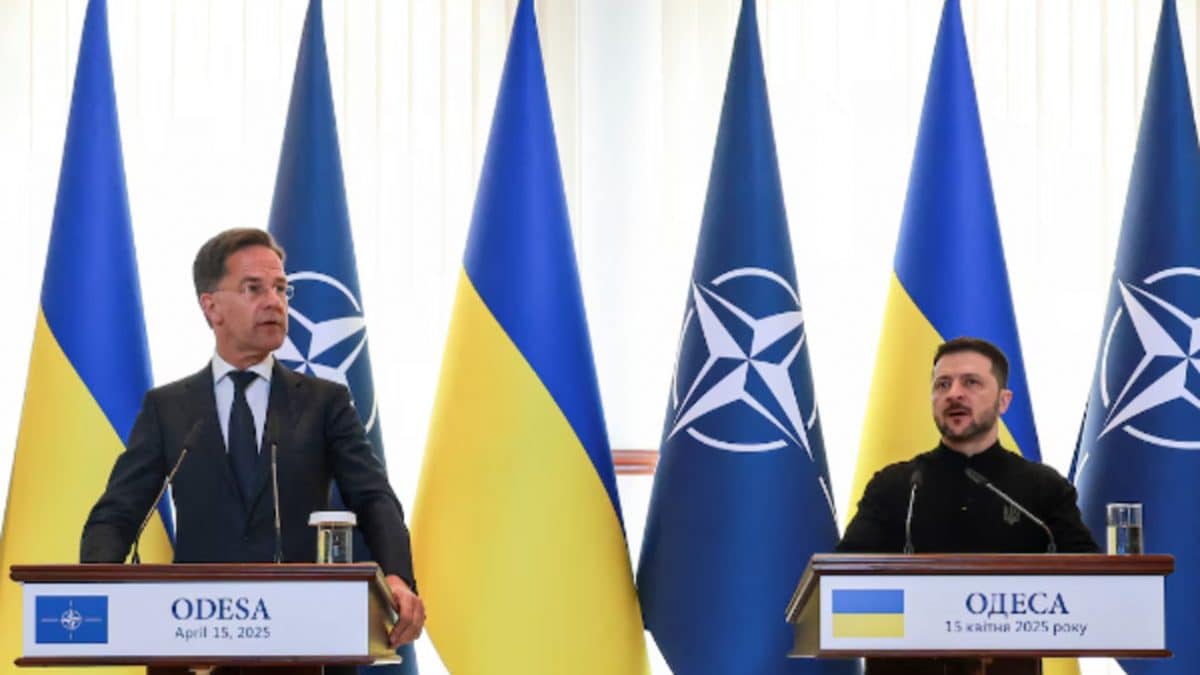NATO Secretary-General Mark Rutte visited Odesa on Tuesday, reaffirming the alliance’s strong support for Ukraine. This comes as Ukraine continues to face deadly Russian missile attack.read more
Nato’s Secretary-General Mark Rutte visited the port city of Odesa on Tuesday and said the organisation’s support for Ukraine remains “unwavering.”
He also emphasised that Nato allies have already promised over €20 billion (about $22 billion) in security aid in the first three months of the year.
Mark Rutte also met with President Volodymyr Zelenskyy in Odesa.
Russia’s deadly missile attack
His visit came just days after two Russian missiles hit the city of Sumy on Palm Sunday morning, killing at least 35 people, including two children, and injuring 119.
The strike on the north-eastern city, located about 30 kilometres from the Russian border, was the second major attack in just over a week to cause heavy civilian casualties.
‘Ukraine’s people deserve real peace’: Rutte
“I’m here today because I believe Ukraine’s people deserve real peace, real safety and security in their country, in their homes,” Rutte said during a joint news conference with Zelenskyy. The two met with wounded Ukrainian soldiers at a hospital in Odesa.
This is Rutte’s first visit to Ukraine since US President Donald Trump took charge of ceasefire talks between Kyiv and Moscow, which have included several rounds of discussions in Saudi Arabia.
“These discussions are not easy, not least in the wake of this horrific violence,” Rutte said, referring to the recent strikes. “But we all support President Trump’s push for peace.” Ukraine has endorsed the broader US-proposed ceasefire deal, though Russia has effectively stalled the process by attaching far-reaching conditions.
‘Coalition of the willing’
Ukraine and its European allies are working on building a “coalition of the willing” — a group that would provide long-term security to help prevent future Russian attacks after a ceasefire.
With the US urging Europe to take more responsibility for its own and Ukraine’s defence, the coalition is being seen as an early test of Europe’s ability to protect itself and its values.
“The fact that these talks are ongoing, that we are preparing for this hopeful, soon-to-be-achieved eventuality — Nato tries to steer that in the direction we think would be advisable,” Rutte said.
The meeting in Turkey comes less than a month after the United States announced that Russia and Ukraine had agreed to “eliminate the use of force” in the Black Sea. However, key details remained unresolved, and the Kremlin has tied the deal to the lifting of certain Western sanctions.
Commenting on ongoing negotiations with the US over a revised draft of an agreement that would give the US access to Ukraine’s valuable mineral resources, Zelenskyy described last week’s technical talks in Washington as positive, with more consultations expected in the coming days.
He said the meeting was a technical session for expert teams and that “both sides concluded the meeting on a positive note.” Zelenskyy added that discussions — both online and in person — will continue throughout the week, and once the teams are ready, they will present the outcomes of their work.
With inputs from AP
